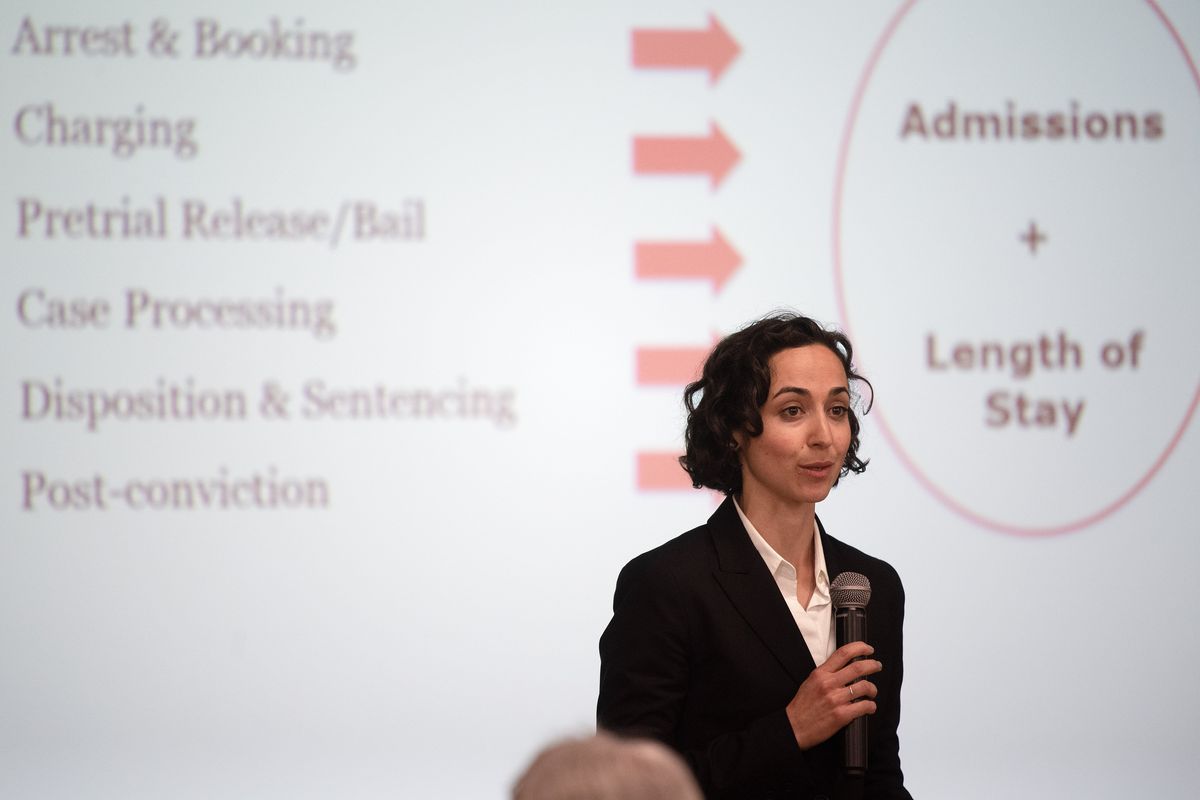Maggie Yates, the woman leading the region’s criminal justice reform efforts, resigns

Maggie Yates, the woman leading Spokane County’s criminal justice reform efforts, resigned this month.
The Spokane County commissioners in 2018 hired Yates as Spokane regional law and justice administrator. The position is jointly funded by the county and city of Spokane. Yates, a Spokane native, was technically the second person to serve in the role, but much of the work she did was entirely new to the county.
As law and justice administrator, Yates focused on reducing Spokane County’s jail population and reducing racial disparities within the criminal justice system. She also worked to secure funding for reform efforts and was tasked with creating programs that made use of roughly $3.6 million the county received in MacArthur Foundation grants.
Yates’ work has been praised by many, especially criminal justice reform advocates, but she’s often faced strong opposition from within Spokane County’s government.
Spokane County Commissioner Al French praised Yates during a Jan. 18 meeting but noted her job hasn’t always been easy.
“It is controversial,” French said of Yates’ work. “She did take an awful lot of flak because she constantly worked to get improvements in the system and change is always difficult. And she encountered that time and time again.”
French specifically noted that Yates “produced an incredible list of projects and improvements.”
“Thanks, Maggie, for all your expertise, your leadership and your diligence to get so many programs into place that have improved the quality of the criminal justice system here,” he said.
Yates declined to elaborate on the reasons for her resignation. In her resignation email, she highlighted her office’s list of accomplishments during the last three and a half years. It’s a long list:
- Developed a portfolio of recommended programs and interventions through the work of the Justice Task Force. This included Guiding Principles, versions of which were adopted by the Spokane City Council and the Spokane Board of County Commissioners.
- Leveraged CARES dollars to provide free cab rides from jail and set up access points for remote court hearings at community shelters.
- Launched the Criminal Justice Information Hotline, which provides information and court date reminders to individuals facing charges in district court.
- Constructed and Piloted the Intake & Release Center intended to process low-level charges outside of the jail.
- Hired a data analyst who has exponentially increased our capacity for analytics and constructed a publicly available jail population dashboard.
- Secured two rounds of funding from the MacArthur Foundation’s Safety & Justice Challenge, totaling roughly $3.6 million.
- Established a law and justice community advisory board that reviews projects and provides feedback.
- Successfully lobbied for a change in the statewide uniform citation form to improve criminal court appearance rates.
- Developed an equity impact assessment that can help policymakers take equity into account on the front end of a project or policy.
- Produced a series of explainer videos on various community resources.
- Awarded $75,000 in microgrants to community-based providers working to tackle persistent challenges across the legal system.
- Launched a Rideshare Pilot that provides free rides to court and court-related appointments for both victims and defendants.
- Launched a pilot to provide free phones to indigent individuals facing criminal charges.
Yates ended her resignation email on a more somber note. She emphasized that glaring inequities persist within the criminal justice system.
For instance, Yates pointed out that about 60% of people coming into the Spokane County Jail have behavioral health disorders, and 20% of people leaving the jail are homeless.
“We lament these figures, along with repeated arrests and persistent racial disparities,” Yates wrote, “yet we fail to adequately invest in alternative infrastructure that can better treat, house, and heal people.”
Yates continued.
“I am not dismissing the reality of crime in our community. I am suggesting that in order to prevent it, we must grapple with its generational relationship to disinvestment, desperation, and distorted perceptions of criminality.”
In order for meaningful change to happen, good data has to inform policy decisions, Yates’ email states. Investment in accessible community-based resources is critical.
“These priorities do not evade personal accountability,” Yates wrote. “Rather, they serve as critical investments in public safety that will pay dividends for generations of Spokane families.”